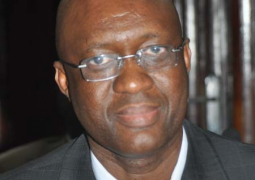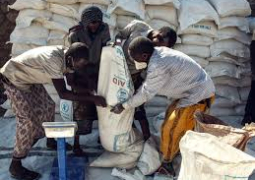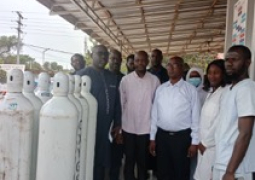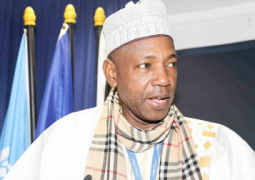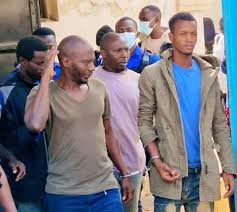
Responding to a question from defence counsel E. Sanneh regarding whether he had informed the court that the door leading to the company’s safe was broken or tampered with, the senior police officer firmly denied the claim. “Those are your words, not mine,” the detective officers said.
Counsel Sanneh pressed further, urging the witness to clarify his exact statement to the court. In response, Saidykhan explained: “I said a small window at the rear of the premises was reportedly broken, providing access to the safe. That’s where we recovered a large hammer and other breaking tools,” he told the court.
The accused - Abdoulie Jallow, Losseni Diabate (also known as Alfusainey Jobarteh, and Ansumana Jarju, are facing three counts ranging from conspiracy to commit a felony, contrary to Section 368 of the Criminal Code, Cap 10:01 Vol. 111 Laws of The Gambia, robbery with violence, contrary to Section 272 and punishable under Section 273 (2) of the Criminal Code, Cap 10:01 Vol 111, Laws of The Gambia, and disabling in order to commit a felony or misdemeanour, contrary to Section 208 of the Criminal Code, Cap 10:01 Vol. 111 Laws of The Gambia.
The high-profile case is before Justice Omar Cham of the High Court in Banjul. When the case was called, M. Mballow announced his appearance for the State, while E. Sanneh, who was cross-examining the witness, announced his appearance for the third accused and held a brief for the first accused, Abdoulie Jallow.
During cross-examination, defence counsel E. Sanneh asked: “In your testimony to this court on 3rd June 2025, you stated that a decoder was taken from the office of United Oil Company in Banjul?”
Deputy Superintendent Lamin Saidykhan responded affirmatively: “Yes, I did say so.”
Sanneh continued: “The only reason you informed the court about the decoder being taken is because someone on site told you, correct?”
Saidykhan replied: “I visited the premises with my team of investigators. I saw where the decoder had been placed. I questioned the complainant about the object that was originally in that spot and we later understood it was the decoder’s position. We asked one of the accused what was picked from there, and the second accused confirmed it was the recorder, because they didn’t want to leave any photographic evidence.”
The second accused, he added, had previously worked at United Vegetable Oil Company and knew that surveillance footage was stored in the decoder.
Sanneh challenged the account, stating: “The second accused never told you that.”
To which Saidykhan responded: “That’s your opinion, but I can tell you he did.”
Sanneh pressed further: “If the second accused gave you such vital information, why wasn’t it recorded in his cautionary statement?”
Saidykhan replied: “It is recorded, if I can remember.”
The defence counsel continued questioning: “In your testimony on 3rd June 2025, you also stated that blood samples were collected at the crime scene?” “Yes,” Sydykhan confirmed.
“And you claimed that latent fingerprints were also gathered?” “Yes,” the officer responded.
Sanneh then asserted: “I put it to you that those blood samples did not match any of the accused, according to your forensic analysis. Did they?”
Saidykhan admitted: “No, they did not match any of the accused.”
“And when you arrived at the crime scene, none of the accused were present?” “None of them were there; they were all in hiding,” said Saidykhan.
Sanneh challenged: “How do you know they were hiding?” Saidykhan responded: “On New Year’s Eve, I was on duty at the station. None of the accused came forward voluntarily; they only spoke to us after they were arrested.”
Sanneh suggested coercion: “They only gave statements because the second accused’s wife was arrested and pressured into giving one so she could be released.”
Saidykhan strongly refuted the claim: “That’s not true. The second accused, Diabate, was arrested before his wife. He told us she had stolen money from a separate case.”
“Do you still stand by your statement that the second accused said his wife had stolen money?” “Yes, I do. The stolen money was linked to the El-Hella Shop incident, not this case. Moreover, the wife gave a supporting statement.”
Sanneh concluded: “Was that statement, allegedly made by the second accused about his wife, recorded in his cautionary statement?”
Saidykhan clarified: “Yes, but in a separate cautionary statement unrelated to the Denton Bridge case in Banjul.”


